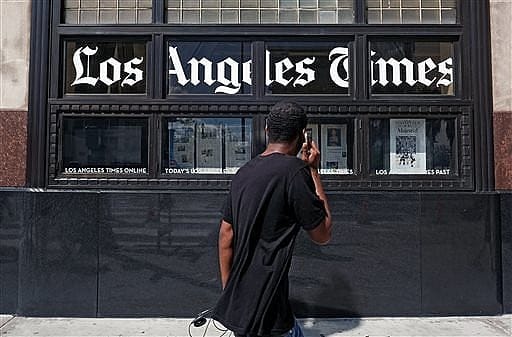News seen at risk of following ‘dinosaur’ dailies down

In an unflinching report on the current state of journalism, the Brookings Institution proclaimed this week that so-called "hard news" is an endangered species along with the print newspaper "dinosaurs" that have purveyed the commodity for centuries.
Tribune Publishing, owner of broadsheet papers such as the Chicago Tribune, Los Angeles Times and Baltimore Sun, spiked the Brookings study's conclusions Thursday by saying it was looking to cut 7 percent of its staff of about 7,500 through buyouts. The company said layoffs may follow, the Associated Press reported. Tribune was among the leaders in seeking to integrate its print, broadcast and online news operations starting in the mid-1990s.

